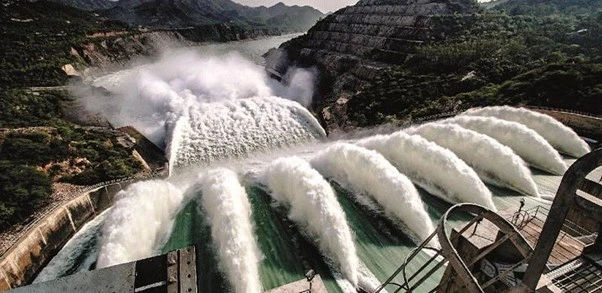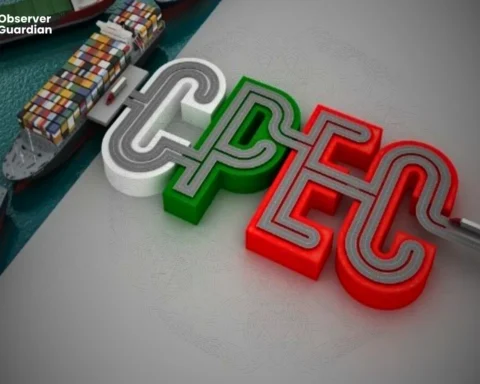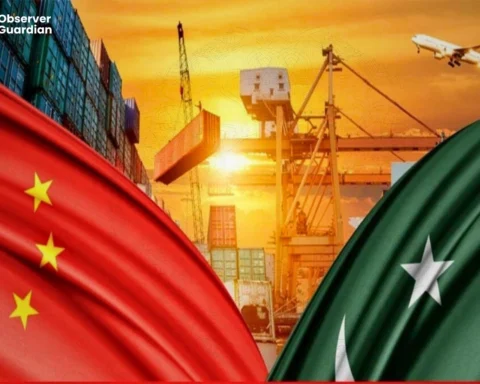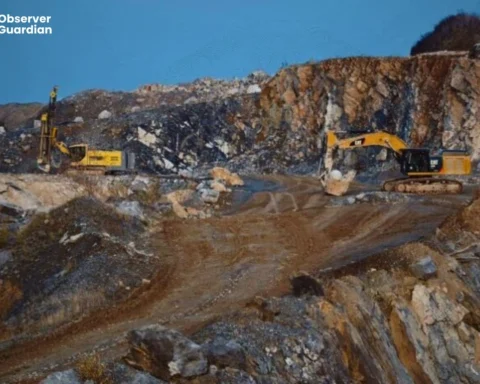Speaking boldly and forcefully on one of Pakistan’s most urgent problems, Prime Minister Muhammad Shehbaz Sharif has said that Indian arrogance about water distribution will be smashed with the same force and unity that would be displayed in a conventional war. Attending a high-level conference on water reservoirs on Thursday, Prime Minister Shehbaz Sharif declared the establishment of a strong committee tasked with supervising the design, building, and funding of freshwater reservoirs all throughout the nation. Emphasizing national unity in the face of growing water-related issues presented by India, the new body will cooperate with the agreement of all provinces.
Attracting important national stakeholders including Army Chief Field Marshal Asim Munir, federal ministers, and other top officials, the conference concentrated on developing a thorough plan to protect Pakistan’s water rights and guarantee long-term water security. The Prime Minister made quite clear in his speech that India cannot unilaterally change or withdraw water sharing under the Indus Waters Treaty. Although Indian threats are meaningless and have no legal or strategic weight, he said Pakistan will not let complacency rule. Rather, strong and forceful responses will be taken right away, defined by a “now or never” attitude to safeguard the interests of next generations.
Deputy Prime Minister Ishaq Dar will be chairing a new committee assigned to supervise the building and financing of freshwater dams. With recommendations straight to the Prime Minister, this group will be essential in formulating Pakistan’s water infrastructure policy. The committee will comprise the necessary federal ministers, Gilgit-Baltistan representatives, the Prime Minister of Azad Jammu and Kashmir, and the Chief Ministers of all four provinces. This inclusive composition is supposed to guarantee that all decisions are decided by national consensus, so removing the potential of provincial conflicts and so strengthening national solidarity.
One of the main announcements made during the conference was that building on non-disputed reservoirs would start with top priority. Projects already decided upon under the 1991 Water Accord will be carried out immediately, the Prime Minister underlined. He cautioned that future generations will not pardon the present leadership should Pakistan fail to move boldly on these agreed projects. This pressing appeal to action emphasizes the vital character of water security in the whole national security and development agenda of the nation.
The Prime Minister also sharply attacked India’s growing aggressiveness toward the Indus Waters Treaty. Following India’s losses on other fronts, he noted, it is now using water as a pressure tool by threatening to violate or weaponize the Treaty. Shehbaz Sharif, confirming Pakistan’s legal and treaty-bound rights to the Indus, Jhelum, and Chenab rivers, discounted these threats as unfounded, nevertheless.
He underlined that both practically and politically India’s attempts to change or violate Pakistan’s water rights will be fiercely resisted. “Our answer to India’s water aggression will not be mere rhetoric,” the Prime Minister warned. “We will reply with action: by building dams, by investing in our water infrastructure, and by getting ready to face this challenge as a united, determined nation.”
Beyond the geopolitical element, Shehbaz Sharif again underlined the crucial link between economic stability and water security. He said that words cannot define economic success; rather, it depends on constant effort, visionary planning, and consistent execution all over the federation and all provinces. He said that the ideal of a stable and rich Pakistan is closely related to the country’s capacity to properly handle its natural resources, especially its water supplies.
He underlined that Pakistan’s entitlement to water is non-negotiable. Having a population of more than 240 million, the nation cannot afford to stay docile while its lifeline is under danger. Consequently, guaranteeing access to sufficient water resources must become a shared national objective. This, he continued, is a moral obligation towards next generations as much as a technical or environmental one. He exhorted all those involved in government and civic society to see water management as a national survival issue.
Pakistan’s stance toward water management undergoes a major change with the establishment of this new water committee and the Prime Minister’s impassioned speech. Once delays and provincial conflicts stopped development on significant dam projects, the new path stresses speed, unity, and cooperation. The political will demonstrated at the highest-level points to a long-overdue awakening to the strategic relevance of water security.
Furthermore, underlined by Prime Minister Shehbaz Sharif was the government’s sole focus on building such reservoirs free from inter-provincial conflicts. This strategy guarantees that internal strife does not divert the efforts and that national resources are focused effectively on initiatives with general agreement. To preserve national cohesion, he vowed complete openness and inclusiveness in this process.
Thursday’s conference delivered a loud and unambiguous message: Pakistan would not let internal conflicts or outside threats endanger its water security. The government has created a line in the sand by assembling a national committee, giving consensus-based projects top priority, and pledging to face Indian provocations with unity and commitment. Decision-making has passed its time. Under the banner of national survival and economic rebirth, the leadership has promised aggressive actions.
India’s approach of pressuring Pakistan by controlling water flow could have backfired. It has inspired Pakistan’s leadership to respond concretely and collectively rather than encouraging panic or capitulation. Not only political hyperbole, but also swiftly becoming a national goal is the will to eradicate Indian arrogance on water. Pakistan’s aggressive water strategy will probably become pillar of its national security theory in this new era of geopolitical and environmental issues.







